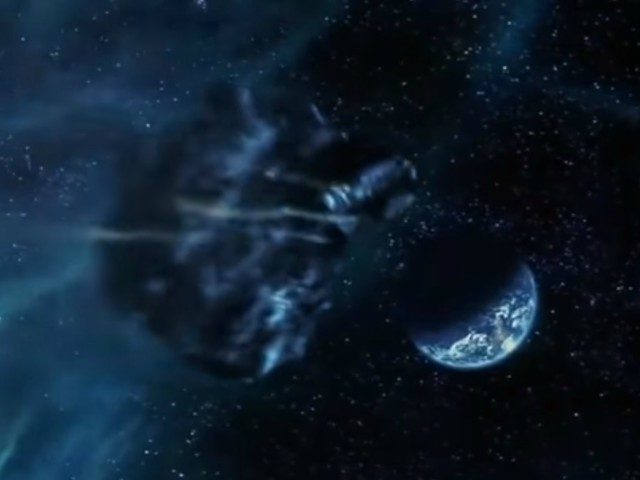Asteroid 2010 WC9 will pass even closer to the Earth than the moon on Tuesday — closer than it has been in 300 years.
The catchy-named 2010 WC9 is somewhere between 200 and 400 feet in diameter, “as big across as a city block” according to Goddard Space Flight Center asteroid expert Dr. Erin Ryan. It is expected to pass 126,000 miles from the Earth — about half the distance to the moon — at a blistering 29,000 miles per hour at 6:05 PM EDT on Tuesday.
You might think this encounter would make for quite a show, but 2010 WC9 is also relatively demure; it was too faint to be visible to the naked eye. London, England’s Northolt Branch Observatories began live-streaming its approach at about 7 PM on May 14.
For all its proximity and speed, NASA is certain the asteroid presents no real danger. “We knew enough not to be worried,” said Dr. Paul Chodas, director of the Center for Near-Earth Object Studies at the NASA Jet Propulsion Laboratory in Pasadena, California, after the object was discovered in 2010.
Chodas said an asteroid of 2010 WC9’s size hits Earth about once every 6,000 years, but luckily for us, it does not appear that we will have to personally confirm that any time soon. As of December 2017, Dr. Amy Mainzer — an asteroid expert at the Jet Propulsion Laboratory — reported that “there are no objects that have been identified that are known to be on a collision course with Earth.”

COMMENTS
Please let us know if you're having issues with commenting.